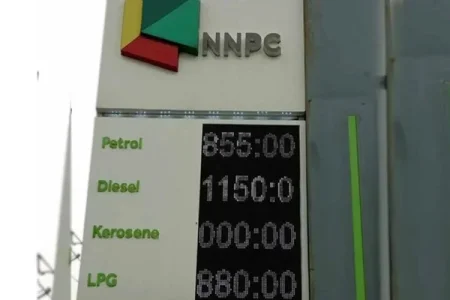
The Manufacturers Association of Nigeria warns that the recent petrol price hike from ₦568 to ₦855 per litre may lead to rising inflation, increasing costs for transportation and goods. This could particularly impact small and medium-sized enterprises, reducing consumer demand and threatening the already struggling manufacturing sector.
The Manufacturers Association of Nigeria (MAN) has voiced serious concerns regarding the recent increase in the price of Premium Motor Spirit (PMS), commonly known as petrol. As of September 3, 2024, the price surged from ₦568 to ₦855 per litre across NNPC filling stations, prompting fears of a rise in inflation that could adversely affect household budgets.
Segun Ajayi-Kadir, MAN's Director-General, highlighted that the petrol price hike would likely lead to increased transportation costs, which would, in turn, inflate prices of goods and services. "Consumers will spend more on transportation and energy, leaving them with less disposable income," he explained. This reduction in purchasing power may diminish demand for non-essential goods, thereby impacting businesses in various sectors.
Ajayi-Kadir also pointed out that the already struggling manufacturing sector could suffer further setbacks due to rising production input and logistics costs. "A decrease in consumer demand could lead to unplanned inventory surpluses and lower capacity utilization for manufacturers," he warned.
The association expressed particular concern for small and medium-sized enterprises (SMEs), which typically operate on tight margins. The increased costs might force some of these businesses to downscale operations or shut down altogether if they cannot transfer the added expenses to consumers.
Ajayi-Kadir attributed the price hike to global increases in crude oil prices, the absence of domestic refinery production, and the depreciating value of the Naira. He noted that the adjustments in petrol prices were inevitable following the removal of fuel subsidies.
The hike has sparked national outrage, with organized labor groups calling for an immediate reversal of the new price. As the situation develops, many Nigerians fear the repercussions on their daily lives and the broader economy, further emphasizing the need for effective fiscal management and support for vulnerable sectors.




